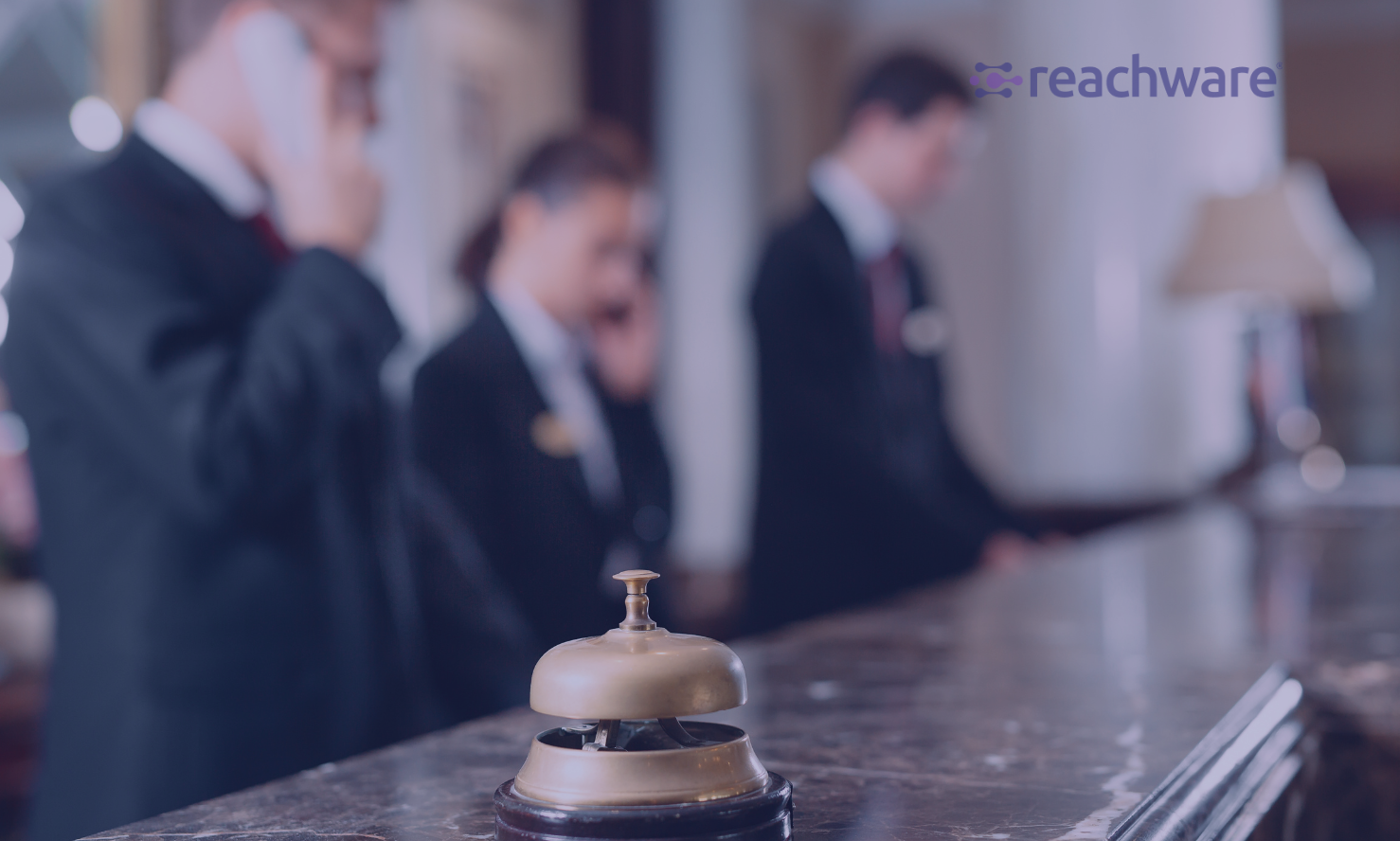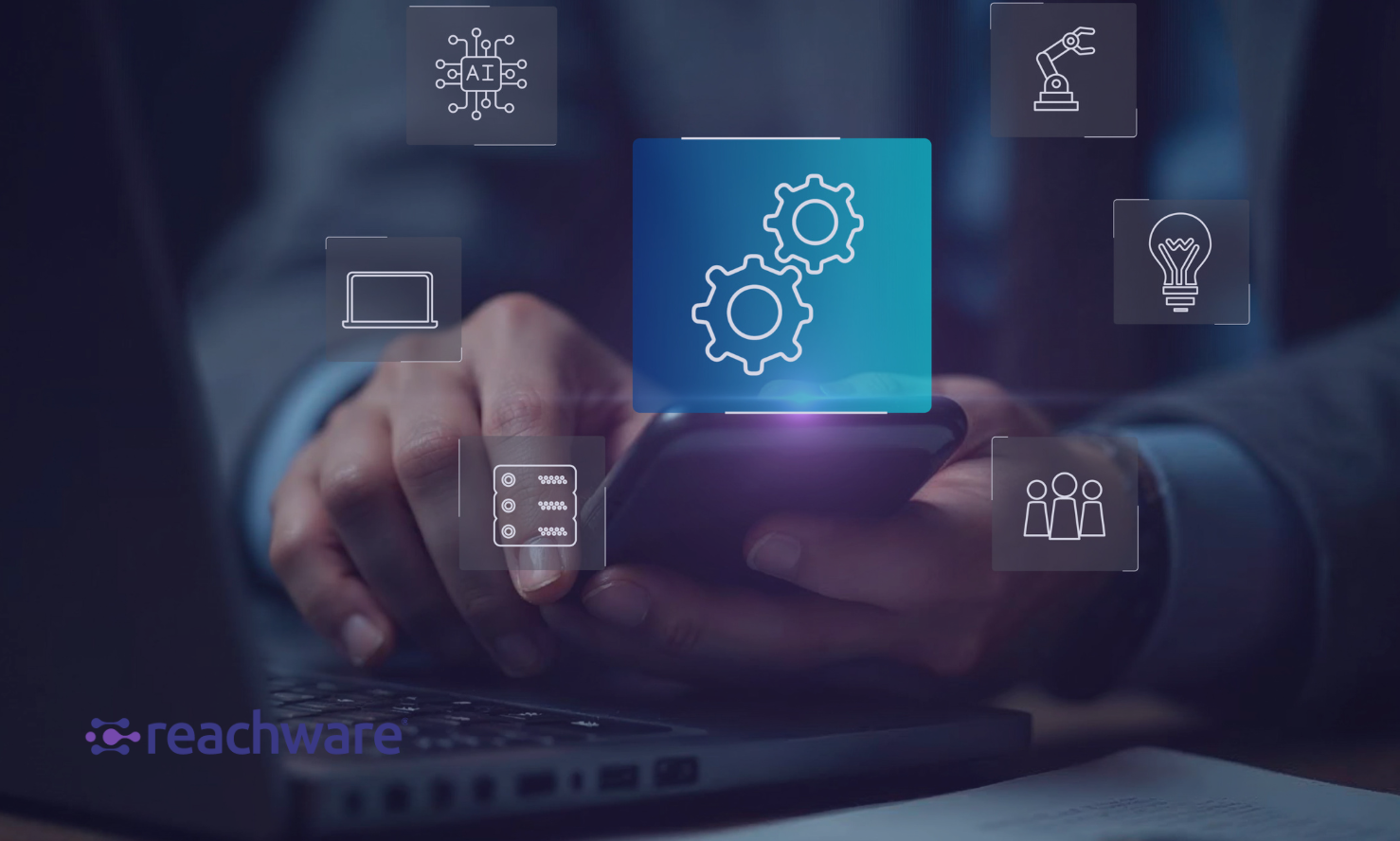Case Study: How Hospitality Businesses Achieved Success with System Integration

In the competitive hospitality industry, companies use system integration at a greater level to make their operations smoother, improve guest experiences, and increase profits. By combining various systems like booking platforms, customer service tools, or accounting software, hospitality companies have become extra efficient. Reachware, as a key player in system integration, helps streamline these processes. This case study explores how various hotel companies successfully combined their systems to improve operations and promote sustainable growth.
Importance of System Integration in the Hospitality Industry
In the hospitality business, this system makes different technology systems work smoothly. This includes integrating property management systems (PMS), point of sale (POS), booking engines, and service tools. By combining these systems, hotels and resorts can make their operations smoother, work more efficiently, and provide a better experience for guests. It enables quick information sharing, improved resource use, and quicker decision-making. It helps hospitality companies stay competitive, reduce manual errors, and ensure smooth operations across all departments.
How Does System Integration Benefit Hospitality Businesses?
Improved Operational Efficiency
It helps hotel businesses work more efficiently by automating tasks that would typically need to be done by hand. Connecting front desk operations, cleaning, and guest service requests to a central system can help avoid duplication and simplify the work process. With instant access to information, hotel staff can easily and quickly help guests, reducing wait times and using resources better. This results in quicker check-ins, faster room cleaning, and improved total service.
Enhanced Guest Experience
By combining tools like property management, booking systems, and customer relationship management (CRM), hotels and more hospitality businesses can create a custom guest experience. Guest preferences or past can be shared between different departments. This will permit personalized services like room choices, special requests, or loyalty rewards. Hence, this connection helps make customers happier because they feel appreciated and understood. A unified system makes check-in, check-out, room service, and billing easy, improving guests' ease and comfort.
Real-Time Data Access
This system allows hospitality companies to see real-time data from various departments. This is important for making decisions and plans for the business. For example, managers can monitor occupancy rates, revenue, and staff productivity in real time, which helps them make quick and smart choices. Sales and marketing teams can look at what guests like and trends to create better deals that match customers' wants.
Cost Savings and Resource Management
Integrating systems helps businesses better use their resources and lower their costs. By centralizing data, hotels can reduce duplicate work, decrease wasted supplies, and control energy better. For example, using automatic control for lights and heating/air conditioning systems can help save a lot of money on utility bills. It helps lower human errors. This can lead to expensive mistakes like overbooking or payment issues.
Scalability and Flexibility
As hospitality businesses expand, using combined systems makes it simpler to grow. New features or services can be added without affecting current processes. This flexibility helps companies adjust to market and customer needs changes while keeping things consistent at all their sites.
What Systems Can Be Integrated in a Hospitality Business?
Different systems can be combined in a hospitality business to make operations smoother and enhance the guest experience. Typical systems that are often connected include Property Management Systems (PMS), Point of Sale (POS) systems, booking engines, and Customer Relationship Management (CRM) platforms. You can connect systems like accounting tools, housekeeping management, and inventory control. Connecting these systems allows teams to communicate quickly, share data instantly, and simplify operations. This improves how well things run and makes guests happier. System integration helps hospitality companies offer their customers a better and more personalized experience.
System Integration Improves the Overall Customer Experience in Hotels
System integration improves the hotel's customer experience by allowing different teams to communicate efficiently. With combined Property Management Systems (PMS), booking tools, and Customer Relationship Management (CRM) systems, staff can immediately see guests' tastes and past visits. This helps them provide personalized services. Knowing what a guest likes or has asked for in the past helps make their stay better, like choosing room features and special deals. Automated check-ins and check-outs help guests wait less, and coordinated systems provide faster answers to guest questions. It hence makes hotel operations easier, leading to a better, more efficient, and personalized guest experience.
Common Challenges Hospitality Businesses Face During System Integration
High Initial Costs
The high initial cost is a significant challenge in integrating systems in hospitality companies. Combining different systems like Property Management Systems (PMS), Customer Relationship Management (CRM), and Point of Sale (POS) can cost a lot of money. Businesses must buy new software, hire skilled IT workers, and sometimes improve their hardware to ensure everything works together. These costs can be a big challenge for small businesses, making it hard to justify spending money now, even if it helps in the long run.
Data Security and Privacy Concerns
Combining different systems raises the chance of data leaks and security issues. Hotels keep essential customer information like payment data and personal choices, so keeping their systems secure is very important. Keeping this info safe needs strong cybersecurity measures, which can be expensive and require ongoing attention. Hotels need to ensure that the systems they use follow rules like GDPR to prevent legal problems and maintain customer trust.
Resistance to Change from Staff
When new systems are introduced, staff may fight, mainly if they are used to older methods. Employees might be hesitant to use some new technologies because they are not used to them or worry that their jobs will become more complex. Proper training and change management strategies are essential to address reluctance and ensure staff can use the new systems effectively.
Compatibility and Integration Issues
Many hospitality companies use both old systems and new software. Combining these different systems can be difficult because they often fail. This may need a lot of adjustments or even redoing some parts of the current setup. Additionally, because there is no common standard in the industry, some systems may have trouble communicating with one another, leading to delays or problems in handling data.
System Integration Help with Managing Multiple Hotel Locations
Yes, system integration is essential for handling several hotel sites. Hotel chains can make it easier to handle all their properties by connecting their Property Management Systems (PMS), booking engines, and other tools. This helps them gather data in one place and improve their operations. This provides live updates on room availability, guest preferences, or performance metrics, helping to maintain a high level of excellent service. System integration makes it easier to handle reports, inventory, and staff. This allows hotel managers to keep track of performance and make better decisions based on data. Overall, integration helps to achieve operational efficiency and maintain a high standard of guest experience across all sites.
Things to Consider Before Choosing a System Integration Partner
Before choosing a system integration partner, companies should consider a few essential factors. Ensure the partner has hospitality experience and knows the business's unique needs. Think about their professional skills, especially their knowledge of the systems being combined, like Property Management Systems (PMS) and Point of Sale (POS) systems. Check how well they can offer continuous help and training. It's vital to look at their past performance, customer feedback, and how easily they can adapt to future changes. Lastly, the cost should fit within your planned budget so that the investment provides superb returns.
Conclusion
System integration has significantly improved the hospitality industry by helping companies cut costs, work more efficiently, and offer better customer service. By incorporating innovative solutions like Reachware, these companies have enhanced their ability to seamlessly connect various systems, from booking platforms to customer service tools. This approach has set them up for lasting success in a changing field, positioning them to adapt to new challenges and continuously improve their operations.
Frequently Asked Questions
What are the risks of not adopting system integration in hospitality?
Not using system connectivity can cause problems like wasted time, mistakes, and disconnected processes. This may lead to lost chances to save money and gain an edge over competitors.
Can system integration provide real-time data for decision-making?
System integration allows businesses to get real-time data from different areas, helping management make quick and smart choices.
How can system integration impact guest satisfaction?
System integration makes guest services more efficient. This leads to quicker responses, tailored experiences, and easier communication, which improves guest happiness and results in better reviews.
What are the future trends in system integration?
In the future, we will see more use of AI and cloud systems to improve how different systems work together. This will increase automation and provide a better experience for guests.
How can small hotels benefit from system integration?
Small hotels can make their operations smoother, reduce mistakes, enhance guest services, and handle resources more effectively. This helps them compete better with larger hotels.




























